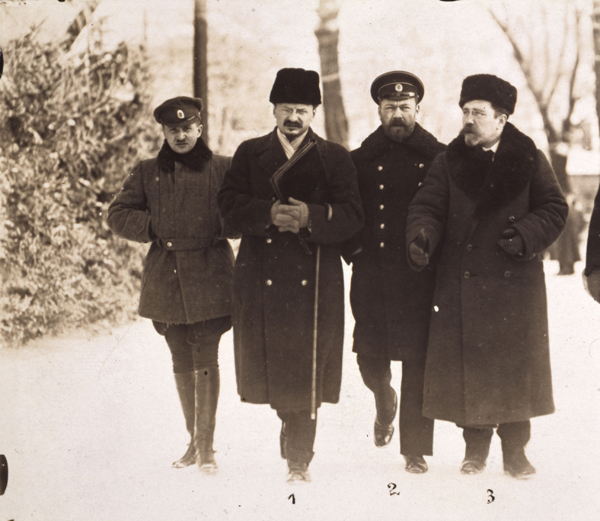Source

Source: Deutsches Historisches Museum
After the failure of the first round of negotiations between the Bolsheviks and the Central Powers, Leon Trotsky (1879-1940) assumed the directorship of the Soviet Russian delegation on January 9, 1918. The peace treaty of Brest-Litovsk was finally signed on March 3, 1918, signaling Russia’s exit from the First World War. Russia thereby relinquished one-third of her population and large portions of her raw materials and industrial potential. The Treaty’s signatories were Russia, the German Reich, Austria-Hungary, Bulgaria, and the Ottoman Empire. The armistice of Compiègne, signed with the Allies on November 11, 1918 subsequently annulled the Treaty of Brest-Litovsk. This photograph, taken between December 3rd and 15th, 1917, shows the Russian delegation under the leadership of Adolf Joffe (far right). With him (from left to right) are Lipski, Trotsky, and Admiral Vasili Mikhailovich Altfater.

Source: Deutsches Historisches Museum
DHM